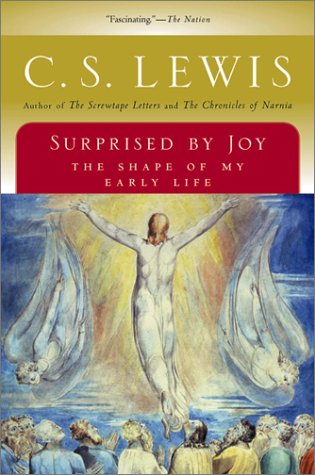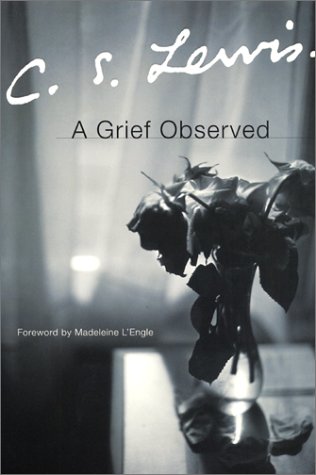"All the 'homeliness' (wh. was your chief lesson to me) was the introduction to the Christian virtue of charity or love. I sometimes manage now to get into a state in wh. I think of all my enemies and can honestly say that I find something lovable (even if it is only an oddity) in them all: and your conception of 'homeliness' is largely the route by wh. I have reached this. On the other hand, all the 'strangeness' (wh. was my lesson to you) turned out to be only the first stop in far deeper mysteries."I like the idea of friends giving each other lessons that help them become better; helping each where they are weak and the other strong and receiving help in return. :)
In another letter to his friend Arthur, he writes about his conversion to Christianity.
"Now what Dyson and Tolkien showed me was this: that if I met the idea of sacrifice in a Pagan story I didn't mind it at all: again, that if I met the idea of a god sacrificing himself to himself (cf. the quotation opposite the title page of Dymer) I liked it very much and was mysteriously moved by it: again, that the idea of the dying and reviving god (Balder, Adonis, Bacchus) similarly moved me provided I met it anywhere except in the Gospels. The reason was that in Pagan stories I was prepared to feel the myth as profound and suggestive of meanings beyond my grasp even tho' I could not say in cold prose 'what it meant'.
Now the story of Christ is simply a true myth: a myth working on us in the same way as the others, but with this tremendous difference that it really happened: and one must be content to accept it in the same way, remembering that it is God's myth where the others are men's myths: i.e. the Pagan stories are God expressing Himself through the minds of poets, using such images as He found there, while Christianity is God expressing Himself through what we call 'real things'. Therefore it is true, not in the sense of being a 'description' of God (that no finite mind could take in) but in the sense of being the way in which God chooses to (or can) appear to our faculties. The 'doctrines' we get out of the true myth are of course less true: they are translations into our concepts and ideas of that wh. God has already expressed in a language more adequate, namely the actual incarnation, crucifixion, and resurrection."From Myth Became Fact:
Now as myth transcends thought, Incarnation transcends myth. The heart of Christianity is a myth which is also a fact. The old myth of the Dying God, without ceasing to be myth comes down from the heaven of legend and imagination to the earth of history. It happens--at a particular date, in a particular place, followed by definable historical consequences. We pass from a Balder or an Osiris, dying nobody knows when or where, to a historical Person crucified (it is all in order) under Pontius Pilate. By becoming fact it does not cease to be myth: that is the miracle.This reminds me of what Northrop Frye wrote in Words With Power:
“Originally, a symbol was a token or counter, like the stub of a theater ticket which is not the performance, but will take us to where the performance is. It still retains the sense of something that may be of limited interest or value in itself, but points in the direction of something that can be approached directly only with its help.I like and agree with the idea that there are some things that can only be approached through myth and symbol, and that if we take away the myth or symbol, the meaning is reduced. We can approach it directly only with the help of a symbol. We can understand only through myth and story. :)
From An Experiment in Criticism, on literature:
What then is the good of – what is even the defence for – occupying our hearts with stories of what never happened and entering vicariously into feelings which we should try to avoid having in our own person? The nearest I have yet got to an answer is that we seek an enlargement of our being. We want to be more than ourselves.We want to see with other eyes, to imagine with other imaginations, to feel with other hearts, as well as with our own... One of the things we feel after reading a great work is ‘I have got out’. Or from another point of view, ‘I have got in’ ; pierced the shell of some other monad and discovered what it is like inside. Good reading, therefore, though it is not essentially an affectional or moral or intellectual activity, has something in common with all three. In love we escape form our self into one other. In coming to understand anything we are rejecting the facts as they are for us in favour of the facts as they are. The primary impulse of each is to maintain and aggrandise himself. The secondary impulse is to go out of the self, to correct its provincialism and heal its loneliness. In love, in virtue, in the pursuit of knowledge, and in the reception of the arts, we are doing this. Obviously this process can be described either as an enlargment or as a temporary annihilation of the self. But that is an old paradox ; ‘he that loseth his life shall save it'... Those of us who have been true readers all our life seldom fully realise the enormous extension of our being which we owe to authors... The man who is contented to be only himself, and therefore less a self, is in prison. My own eyes are not enough for me, I will see through those of others. Reality, even seen through the eyes of many, is not enough. I will see what others have invented. Even the eyes of all humanity are not enough. I regret that the brutes cannot write books. Very gladly would I learn what face things present to I mouse or a bee; more gladly still would I perceive the olfactory world charged with all the information and emotion it earries for a dog. Literary experience heals the wound, without undermining the privilege, of individuality... In reading great literature I become a thousand men and yet remain myself. Like the night sky in the Greek poem, I see with a myriad eyes, but it is still I who see. Here, as in worship, in love, in moral action, and in knowing, I transcend myself; and am never more myself than when I do."From Learning in War Time:
"The work of a Beethoven and the work of a charwoman become spiritual on precisely the same condition, that of being offered to God, of being done humbly “as to the Lord.”"This reminds me of what Dieter F. Uchtdorf said in the most recent LDS General Conference:
"The Lord doesn’t care at all if we spend our days working in marble halls or stable stalls. He knows where we are, no matter how humble our circumstances. He will use—in His own way and for His holy purposes—those who incline their hearts to Him."














No comments:
Post a Comment